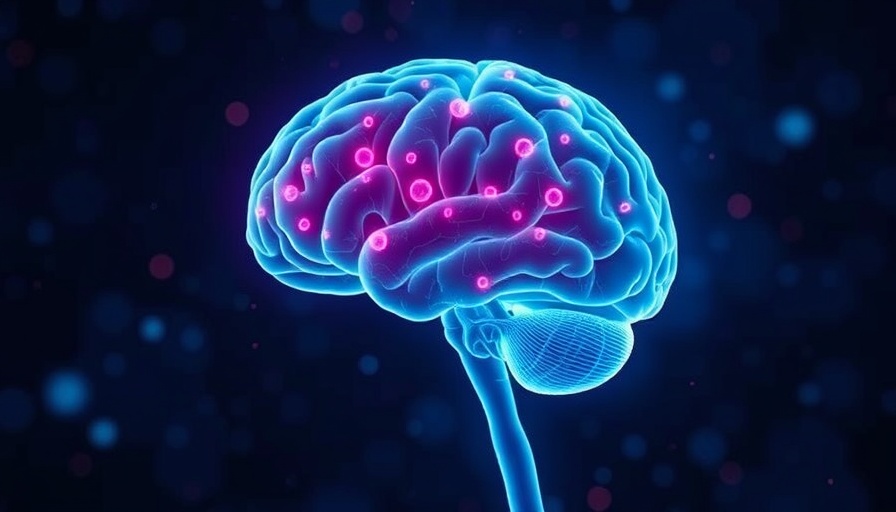
Taking the Right Steps for Brain Health
As we journey through life, taking care of our brains becomes just as important as maintaining our physical health. Neurologists urge us to pay close attention to our habits and lifestyles, particularly as age advances and our cognitive health becomes a greater concern. Fortunately, a collection of simple yet impactful strategies can greatly enhance our brain's well-being.
Understanding Brain Health: A Holistic Approach
Dr. Suzanne O'Sullivan, a consultant neurologist, emphasizes the interconnectedness of bodily and brain health. This means that adopting a holistic perspective on health—similar to what we apply to our physical fitness—is essential for keeping our brains in tip-top shape. Regular exercise, a balanced diet rich in nutrients, and prioritizing sleep are crucial components of a healthy lifestyle that can contribute positively to cognitive function.
The Power of Sleep and Nutrition
Every good brain health routine starts with quality sleep. Dr. O'Sullivan pointed out that as we age, the body’s resilience diminishes, underscoring the importance of restorative sleep. Additionally, opting for heart-healthy fats like olive oil instead of butter places us on a path to improved overall health. Such swaps, along with a focus on brain-boosting foods, help us maintain mental clarity and focus.
Cutting Back on Worries: The Impact of Alcohol and Smoking
Neurologists are united in their message about alcohol consumption and smoking: moderation is key. Professor Tom Solomon's advice is straightforward—say no to daily drinking habits and smoking, preserving our neural pathways. The consensus among specialists is that while moderate alcohol consumption might present some benefits, the risks often outweigh them, especially for our brain health.
Stay Active: The Link Between Movement and Cognitive Function
Regular exercise plays a pivotal role in maintaining brain health. Dr. Richard Davenport emphasizes that what benefits our cardiovascular system also benefits our brain. Engaging in physical activity aids in promoting healthy blood pressure, ultimately reducing the risk of cognitive decline. Planning a weekly exercise routine can lead to substantial long-term benefits, making activities like walking, running, or swimming essential for brain vitality.
Joy in Learning: The Role of Hobbies
Doctors recommend finding a 'magnificent obsession'—a hobby or interest that keeps the brain engaged. Whether it's learning an instrument, painting, or even gardening, pursuing passions can significantly enhance mental acuity and create avenues for social connection, which is vital as we age.
Daily Wellness Routines: Practical Steps for Optimal Brain Function
Incorporating small, measurable changes into daily life can lead to toned cognitive prowess. Establishing a morning routine that includes mindfulness meditation can alleviate stress and foster mental clarity. Integrating brain-healthy foods like nuts, berries, and fish in your diet can provide essential nutrients that promote longevity and protect against conditions like Alzheimer’s. Regular hydration, too, is critical—never underestimate the power of water in keeping mental performance high!
Adopting a Balanced Lifestyle: Your Path to Holistic Wellness
The journey to improved brain health doesn't need to be an overwhelming task. By taking small steps—meal prepping with healthy components, dedicating time to recreational passions, and establishing disciplined sleep routines—we can create a sustainable lifestyle that benefits the brain and overall well-being.
Embrace Change: Your Mind Matters
Now is the time to act! By incorporating these expert-backed tips into your daily routine, you not only enhance your cognitive abilities but also joyfully embrace a healthier lifestyle. Don’t wait until the effects of aging hit home; take charge of your brain health today! Consider drafting a personal wellness journal to document your progress and remain motivated on this path.
 Add Element
Add Element  Add Row
Add Row 



Write A Comment